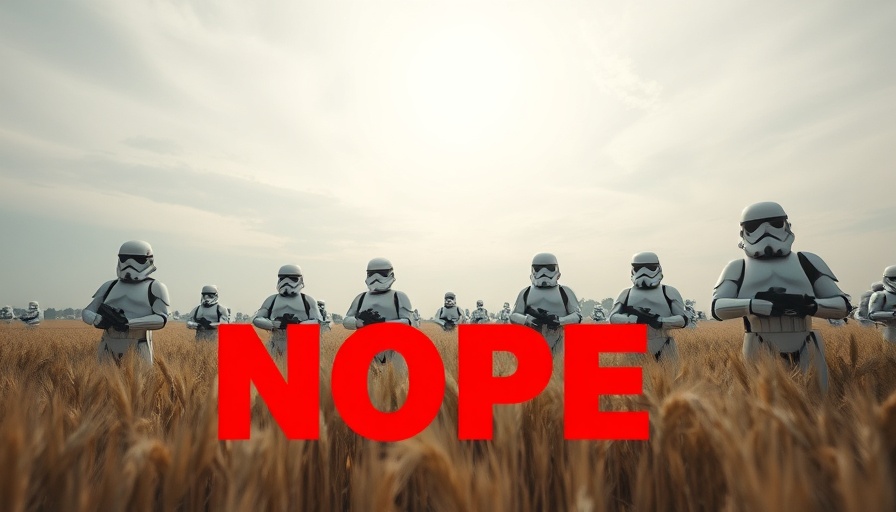
The True Villain of Star Wars: A Deeper Look
All too often, fans of the Star Wars franchise zero in on iconic villains like Darth Vader and Emperor Palpatine. However, a recent reexamination of the series highlights an unexpected antagonist—a force not of the Dark Side, but of government bureaucracy. The success of the show Andor shines a light on this often-overlooked villain, proving that the real conflict lies not with individual characters but rather with an oppressive system that stifles creativity and autonomy.
Understanding Bureaucracy as the Foe
The argument that bureaucracy represents the true evil in Star Wars emphasizes how systemic failings create chaos rather than the actions of individual villains. For many viewers, this resonates more deeply than abstract conflicts with the mystical nature of the Force.
The Death Star, for instance, exemplifies this bureaucratic nightmare. Far from just a tool of evil, the creation of such an imposing weapon underscores the inefficiencies and corruption embedded in the Empire's bureaucracy. Like a public project marred by inefficiencies, the construction of the Death Star was the end product of endless red tape and incompetence which ultimately, instead of instilling fear, produced catastrophic failures.
Leia, Luke, and the Struggles Against Red Tape
When analyzing the original trilogy, it's critical to realize that Luke Skywalker and Princess Leia are not mere warriors battling evil Sith Lords; instead, they are fighting against a stifling bureaucratic regime reminiscent of the frustrating interactions ordinary citizens face in reality. Their journey becomes relatable because it mirrors the everyday struggle against red tape and inefficient management system—something so many people endure when navigating government agencies.
Insights From Andor: A New Perspective
The show Andor has taken this theme to heart, presenting a narrative where the real foe can be found in boardrooms and government offices, not just on the battlefield. This refreshing take allows the series to explore themes of resistance and individuality against a backdrop of crushing bureaucracy.
In the first season, various arcs unfold, detailing how ordinary employees of the Empire engage in the systematic oppression of innocent lives not out of malice, but as a product of a faceless, administrative machine. Audiences see characters who, on the surface, are simply going through the motions of their jobs yet are unknowingly complicit in a larger narrative of tyranny.
Contrasting Perspectives: Is Bureaucracy Really Evil?
The interpretation of bureaucracy as the antagonist may simply be a reflection of contemporary society's disdain for red tape. However, contrasting viewpoints argue that bureaucracy is necessary for order and structure. The depiction of bureaucracy in Star Wars can thus provoke further discussion about the actual role of bureaucracy within our institutions. Is it inherently evil, or does it simply require reform? This question ties closely to modern debates about governmental structures and their necessity for societal function.
The Future of Storytelling in Star Wars
Moving forward, this understanding of bureaucracy as the true villain opens the door to an exciting potential franchise future. By exploring this concept further, future Star Wars installments could embrace narratives that challenge existing political and social structures, resonating with audiences who find the themes all too relatable.
In less fantastical terms, businesses and organizations might draw inspiration from Star Wars by reflecting on their own bureaucracies and considering how internal dysfunction can slow progress. The significant takeaway from modern storytelling—both in Star Wars and other narratives—is that often, the true battle lies within the institutions that govern our lives.
Conclusion: Engaging with the Villain Within
The difficult but essential dialogue surrounding bureaucracy as the true villain offers new ways to engage with Star Wars narratives. Awareness of how these themes reflect everyday struggles can lead us to be more vigilant about improving our own systems. So as we watch the galactic battles unfold, let's not just focus on lightsabers and the Force; let’s also engage with the bureaucratic threads that connect us all.
 Add Row
Add Row  Add
Add 




Write A Comment